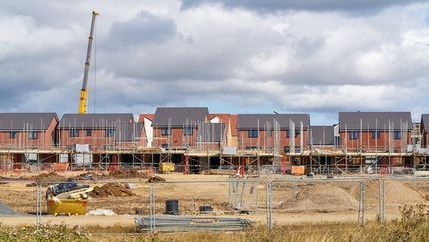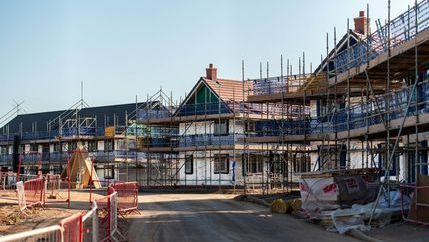
Newly appointed Housing Secretary, Steve Reed, MP, unveiled the ambitious plan to “mobilise the full power of the state” to build a new generation of new towns, as part of a broader push for “national renewal”, in his speech at the Labour Party Conference on 28 September 2025. Three sites are expected to be underway within this Parliament, with sites in Bedfordshire, Enfield, and Leeds identified as the most promising locations.
What’s being proposed
The new towns are intended to be a mixture of wholly new settlements, large urban extensions, and urban regeneration, depending on location. A dedicated New Towns Unit will be set up to fast-track the developments.
Each town is expected to contain at least 10,000 dwellings, aiming to deliver a total of 300,000 homes across the country over time. This includes an ambitious target of 40% affordable housing, half of which will be for social rent.
To support this, the UK Government proposes stronger development corporations with wide powers — including compulsory purchase, planning powers, and investment in local infrastructure (schools, GP surgeries, transport, green spaces).
What this could mean for agents
New towns on this scale will not only deliver thousands of homes but also bring with them schools, transport links, and new amenities — changes that have the potential to reshape entire local markets. With the New Towns Unit involved from the earliest stages of design and land acquisition, there will be opportunities for agents to support local promotion and provide valuable sales and marketing insight.
In the rental market, demand is likely to grow quickly as new housing comes forward. In the early years, before ownership patterns bed in, many households could turn to the private rented sector, increasing the need for letting agents to source tenants, manage compliance, and provide ongoing management services. With a large proportion of affordable homes expected, agents may also encounter new frameworks for handling affordable private rent schemes, opening further areas of work.
The wider regional impacts will also be significant. New towns could alter the balance of supply and demand in surrounding areas, changing the outlook for rental yields, sales values, and housing availability. For agents, this means keeping a close eye on market shifts and being ready to adapt. At the same time, neighbouring communities may benefit from investment in transport, schools, and infrastructure, creating knock-on opportunities for sales and lettings in those areas too.
Representing members and the property sector
Propertymark has long pushed for reforms to unlock housing delivery while protecting standards, consumer confidence and sustainability. Our 2025 reports and policy work have emphasised the need for transparent planning reform and incentives to increase build-out rates, the importance of mixed, sustainable communities where people want to live, and the role of quality, amenity-led development.
This new towns programme, if well delivered, could align with those goals — especially if it manages to marry scale with place-making, and balances public leadership with private sector collaboration.
As the plans take shape, there will be scope for agents, through Propertymark, to influence delivery models — ensuring local property expertise is not overlooked in favour of national frameworks. The proposals make it more important than ever that only qualified professionals manage such large-scale housing schemes.






